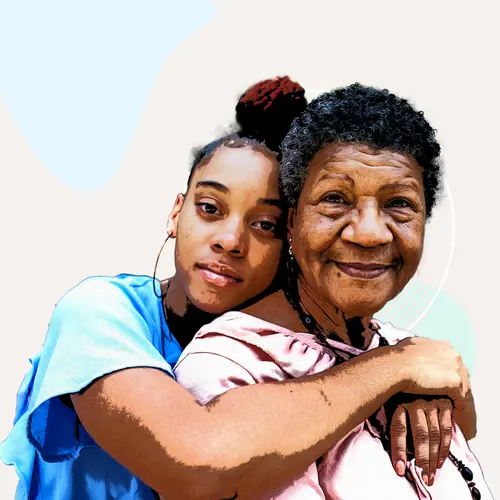Does your loved one with Alzheimer’s also have trouble with bowel movements when they go to the bathroom? Or do they go often enough? Up to half of people over age 65 have constipation.
Someone is constipated if they do two of the following:
- Strain or have to push very hard when they go to the bathroom
- Have hard stools
- Feel like they still have to go more after a bowel movement
- Feel like there’s something that blocks the stool on its way out
- Have 2 or fewer bowel movements per week
- Have to do something to help them have a bowel movement, like push on their belly or use their finger to get the stool out
Call 911 or take your loved one to an emergency room or doctor right away if they have:
- Serious belly pain, especially after they eat or if it gets worse
- Swollen belly
- Blood or black, tarry, or cranberry color in the stool
- Vomiting, if they haven’t had a bowel movement for over a week
- Fever above 101 F
Call their doctor if the constipation is new or gets worse, or your loved one:
Causes of Constipation
Several things can cause constipation. Some are a part of getting older or treating an illness. These include:
- Medicines like painkillers, calcium supplements, and diarrhea medicines
- Age-related weakening of the muscles that push out stool, as the walls of the rectum and anus get stiffer
- Thyroid problems, diabetes, or a problem with the nervous system. Constipation can sometimes get better with treatment.
Other causes are things that can get better with simple lifestyle changes:
- Eat a high-fiber diet with plenty of whole grains.
- Drink lots of fluids.
- Get more exercise.
People who eat at least some solid food will need to have a bowel movement about every 3 days. If they don’t, they may have discomfort when they sit and belly pain, and they may lose their appetite. They may not be able to have a bowel movement without stool softeners or laxatives.
Sometimes hard stool gathers low in the gut and makes it hard to empty the bladder. This can lead to urinary incontinence or infections. Even people on liquid diets will usually have fairly regular bowel movements. However, some people will need to go less often. If that’s their normal pattern, then it’s OK for them.
Constipation is a bother, but it's rarely an emergency. Changes to what they eat, more fluids, more physical activity, a change in medications, treatment of medical causes, or over-the-counter medications can all help.
Complications of Constipation
Fecal impaction. This is when stool hardens and gets stuck in the body. Only watery stool can ooze around the hardened stool that blocks the way, which can make it seem like diarrhea. If your loved one has several days of constipation and no bowel movements, then begins to have diarrhea, they may have an impaction. It can also cause belly pain, especially after meals, and in more serious cases, swelling. If you suspect this, don’t give diarrhea medicine. It will only make the problems worse. Instead, call the doctor. They can help remove the stool as soon as possible.
Hemorrhoids. These swollen veins around the anus often result from straining to poop. They aren’t a major problem and can usually be treated at home. They may bleed after a bowel movement. If you notice a small amount of blood in your loved one’s stool, call their doctor.
Analfissure. Passing a large or hard stool can tear or cut the skin in the anus. Anal fissures usually hurt and might bleed a little. If you see some blood in your loved one’s stool or on toilet paper, but there’s no visible hemorrhoid, they may have an anal fissure. Usually, they heal on their own. A high-fiber diet, fluids, and activity can help. You might give them a stool softener. But if the pain and blood last for more than 7-10 days, take your loved one to a doctor.
How to Prevent Constipation
You can do some things at home to make it better.
- Help your loved one eat 20 to 35 grams of fiber every day. Check the label to see how much fiber is in the food and how much makes up one serving.
- Try fiber supplements from your drugstore or grocery store. These include psyllium, methylcellulose, calcium polycarbophil, or wheat dextran. Your loved one will need to drink fluids when they take them and follow any other instructions.
- Make sure that they drink plenty of fluids during the day -- about 1-2 quarts.
- Get gentle exercise. This helps to move stool along the gut.
- Encourage them to sit on the toilet and try to have a bowel movement shortly after meals. This is when the gut is naturally more active and will help push food and stool along.
- If the time between bowel movements is longer than normal for them, try over-the-counter laxatives like bisacodyl, magnesium citrate, magnesium hydroxide, polyethylene glycol, or senna. Don’t give magnesium hydroxide or magnesium citrate if your loved one has muscle, liver, or kidney problems unless you’ve asked your doctor first.
- Keep a record of when and how often they normally have a bowel movement. This will make it easier to figure out if they’re constipated and the best time of day for them to try to use the bathroom. Most people have between 3 and 15 bowel movements a week.
How to Protect Yourself
Wash your hands often, especially before meals, before you cook food, and after you help your loved one use the bathroom. Wear rubber gloves when you help them around the toilet, clean them, or apply any creams to their anus. Clean the toilet and sink with antimicrobial cleaners, like bleach wipes.

